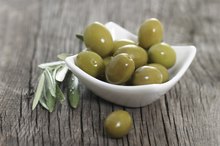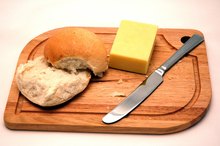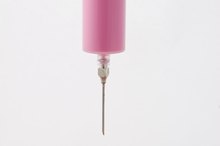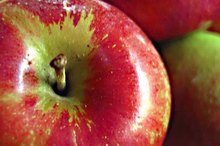What Is Sodium Propionate?
Sodium propionate is a common food additive that is industrially manufactured but also occurs in nature. Since it is toxic to mold and some species of bacteria, it is an especially effective additive in baked goods or other products that are susceptible to spoilage. It is a safe compound when encountered at the low levels found in food.
What Is It?
Sodium propionate is the salt form of propionic acid, which is an organic acid that is produced during the chemical degradation of sugar. It is a compound that is produced naturally in the body when certain fatty acids and amino acids are metabolized. Propionic acid is metabolized by a series of enzymatic reactions that are dependent on the presence of vitamin B-12, according to a 1996 article in the "International Journal of Vitamin and Nutrition Research." Sodium propionate is also chemically manufactured for a variety of industrial uses.
How Is It Used?
Foods With Potassium Sorbate
Learn More
Chemically synthesized sodium propionate is most commonly used as a preservative in the food industry. It prevents the growth of mold and some bacteria, thereby prolonging the shelf life of packaged baked goods. According to the Code of Federal Regulations, sodium propionate is generally recognized as safe when used as a food additive. It is also used to prevent mold growth in packaged and processed cheese products. In addition, ammonium propionate is used as an additive in animal feed to prevent overgrowth of unwanted bacteria in the stomachs of livestock.
How Does It Work?
Research reported in 1967 in the "Journal of Bacteriology" first presented the alteration in the metabolism of Aspergillus glaucus that prevents its growth. This species is a mold that grows on grains and baked goods. Sodium propionate can also slow or prevent the growth of the bacterium Listeria, a common contaminant in packaged cheeses and lunch meats, according to an article published in the October 2007 issue of the "Journal of Food Protection." The use of sodium propionate as a food additive is ideal because its effective concentrations are low enough that you can't taste it in products.
Are There Risks?
Foods Containing Calcium Propionate
Learn More
According to the Material Safety Data Sheet for sodium proprionate, as reported on ScienceLab.com, the pure chemical can irritate the skin if handled. However, since the general public would not come in contact with sodium propionate in its pure form, it does not likely present a risk. The risks of consuming sodium propionate are slight if you compare it to the possibility of consuming products that have mold or bacterial contamination. If you are worried about consuming sodium propionate, buy fresh bread or bake your own.
Related Articles
References
- International Journal for Vitamin and Nutrition Research: Effects of Low Concentrations of Dietary Cobalt on Rumen Succinate
- Code of Federal Regulations, Title 21, Section 184.1784: Sodium Propionate
- Code of Federal Regulations, Title 21 - Food and Drugs, Subchapter B - Food for Human Consumption
- Journal of Bacteriology: Formation of Alpha-Hydroxyglutaric Acid by Aspergillus Glaucus
- Journal of Food Protection: Controlling Listeria Monocytogenes on Sliced Ham and Turkey Products Using Benzoate, Propionate, and Sorbate
Writer Bio
Based in Boston, Dr. Timothy Blalock was a senior scientist and regulatory writer at pharmaceutical companies where he developed preclinical research models, authored manuscripts and wrote grants/regulatory documents. He has produced many published scientific articles and is a member of the American Medical Writers Association. Blalock holds a Ph.D. in biomedical science from the University of Florida.









